Disclosure: This article contains affiliate links. We may earn a commission from purchases at no extra cost to you, which helps our travel content.
The first time I heard Estonia's highlands breathe, I was standing atop Suur Munamägi – not exactly towering at 318 meters, but in this Baltic nation where elevation whispers rather than shouts, it felt like my own personal Everest. The soft rustle of silver birch trees created a natural backbeat to the distant calls of black woodpeckers, a rhythm section I couldn't have produced better in my Memphis studio. After years chasing the dramatic peaks of Patagonia and the Swiss Alps, there's something profoundly intimate about Estonia's modest yet melodic landscapes. Based in the university town of Tartu for a week, I discovered that South Estonia's Otepää Highland offers a perfect counterpoint to urban exploration – a place where glacial hills, pristine lakes, and ancient forests compose a natural symphony that resonates deeply with both my Korean heritage's appreciation for gentle mountains and my American upbringing's love for outdoor adventure. Grab your daypack and join me as we explore the soul-stirring hiking trails just a short bus ride from Estonia's intellectual capital.
Tartu: The Perfect Base Camp for Highland Explorations
Tartu strikes me as Estonia's version of Memphis – smaller than the capital but with a soulful cultural pulse that feels authentically its own. This university town's cobblestone streets and riverside cafés provide the perfect prelude to highland adventures. I found an ideal budget-friendly accommodation at Hektor Design Hostel, where fellow solo travelers gathered each evening to share trail stories over locally brewed craft beers.
The city's compact size means you can easily explore its charming center before and after your hiking days. I spent my mornings recording the ambient sounds of Tartu waking up – the cathedral bells, street musicians tuning their instruments, and the gentle hum of students cycling to lectures. These urban soundscapes created a fascinating contrast to the natural audio I collected in the highlands.
Before heading out each day, I'd stop at Werner Café for their surprisingly excellent plant-based options. Their vegan cinnamon buns paired with strong Estonian coffee became my pre-hike ritual, fueling my body while I plotted routes on my hiking GPS. While Estonia's trails are generally well-marked, having reliable navigation in the more remote sections of the highlands gave me confidence to explore beyond the standard paths.
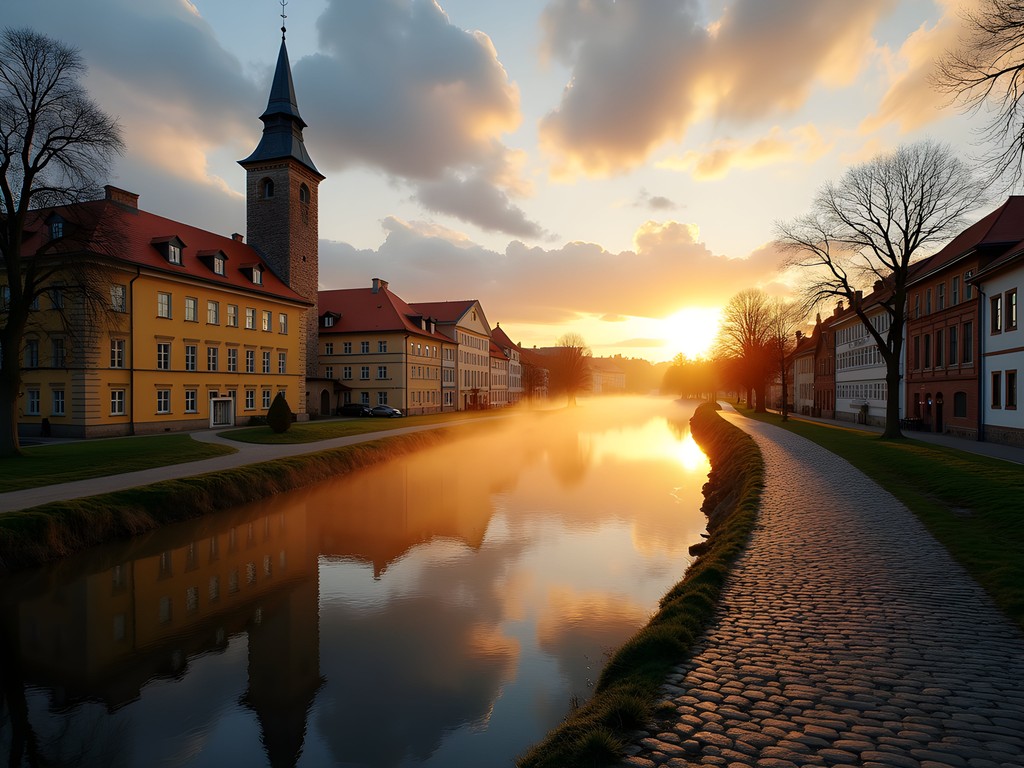
💡 Pro Tips
- Purchase the Tartu Card for discounted public transportation to trailheads
- Download the Estonian Hiking Routes app for offline trail maps
- Visit the Tourist Information Center in Town Hall Square for up-to-date trail conditions
Otepää Nature Park: Estonia's Rhythmic Highlands
Just 40 kilometers south of Tartu lies Otepää Nature Park, the heart of what Estonians proudly call their highland. Don't expect the dramatic peaks of my beloved Patagonia – Estonia's highlands have a different melody, one that's subtle yet deeply moving. The rolling hills, formed by retreating glaciers thousands of years ago, create a landscape that feels like a gentle wave pattern on a sound mixer.
My first hike took me along the shores of Lake Pühajärv (Holy Lake), where I followed the 13-kilometer trail that circles this pristine body of water. The path alternates between dense pine forests and open viewpoints that reveal the lake's five islands. I stopped frequently to record the sounds – water lapping against the shore, wind through reeds, and the distant calls of common cranes. These natural soundscapes will eventually become part of my audio travel series, layered with subtle synthesizer elements to create immersive listening experiences.
The trail around Pühajärv offers enough elevation changes to keep things interesting without being overwhelming. I encountered locals gathering wild blueberries and mushrooms, a reminder that Estonians maintain deep connections to their forests. An elderly woman, noticing my recording equipment, smiled and whispered, "Our forests sing different songs each season." I couldn't have said it better myself.
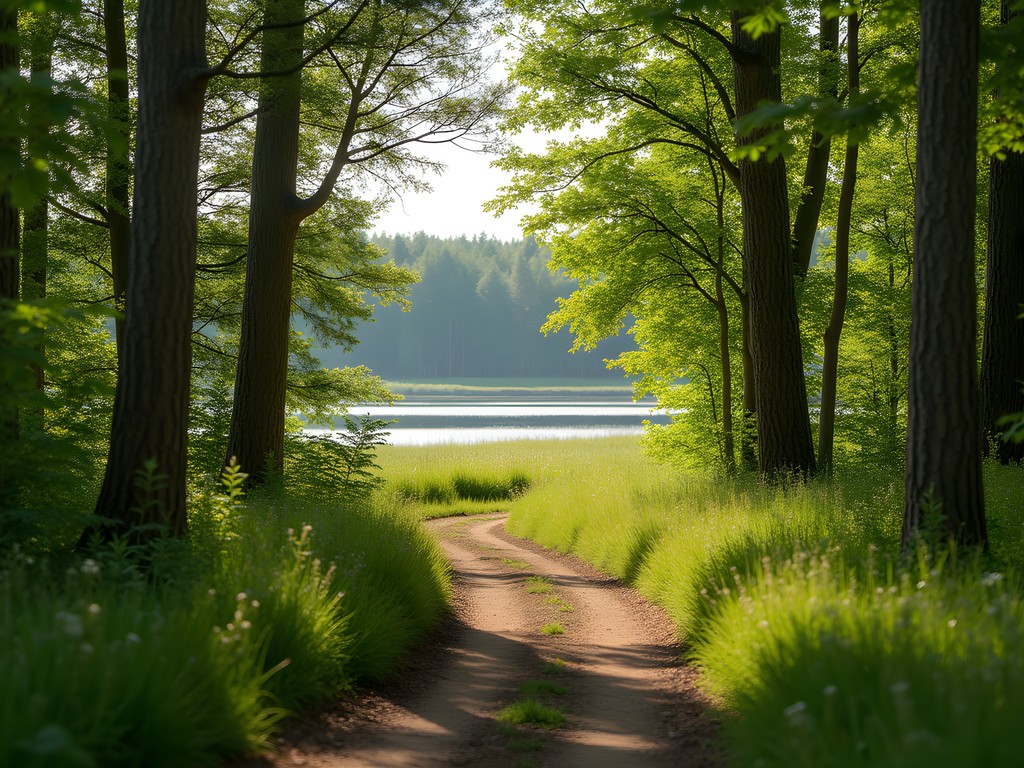
💡 Pro Tips
- Take the #72 bus from Tartu bus station directly to Otepää (runs several times daily)
- Pack a picnic lunch from Tartu's central market to enjoy by the lake
- Bring a swimsuit in summer – there are several designated swimming areas along Lake Pühajärv
Haanja Upland: Chasing Estonia's Highest Notes
While technically requiring an overnight stay from Tartu (though you could rush it as a long day trip), I couldn't write about South Estonian highlands without mentioning my pilgrimage to Suur Munamägi (Big Egg Mountain) in the Haanja Upland. At 318 meters above sea level, it's Estonia's highest point – a fact that made my Korean hiking friends laugh when I shared photos, but height isn't everything in the hiking world.
The journey to Haanja takes about 1.5 hours by bus from Tartu, and I opted to stay at a charming farmstay near Rõuge to fully experience the area. The Haanja hiking trails connect a network of small villages, lakes, and viewpoints across Estonia's most pronounced hills. The elevation gain is modest by international standards, but the cultural landscape more than compensates.
I tackled the 15-kilometer Vällamäe-Rõuge trail, which includes several notable hills and the beautiful Lake Rõuge Suurjärv. My hiking poles proved surprisingly useful on the steeper sections, especially after summer rainfall left parts of the trail slick with mud. The panoramic views from various high points reveal a patchwork of forests, fields, and lakes that stretch all the way to Latvia on clear days.
What struck me most about hiking here was the silence. Coming from Memphis's constant soundtrack and having hiked in more popular mountain regions, the profound quiet of Estonia's highlands felt almost sacred. I spent an hour at sunset simply recording the subtle ambient sounds – distant cowbells, gentle wind, and the occasional woodpecker – creating what might be the most minimalist track in my collection.
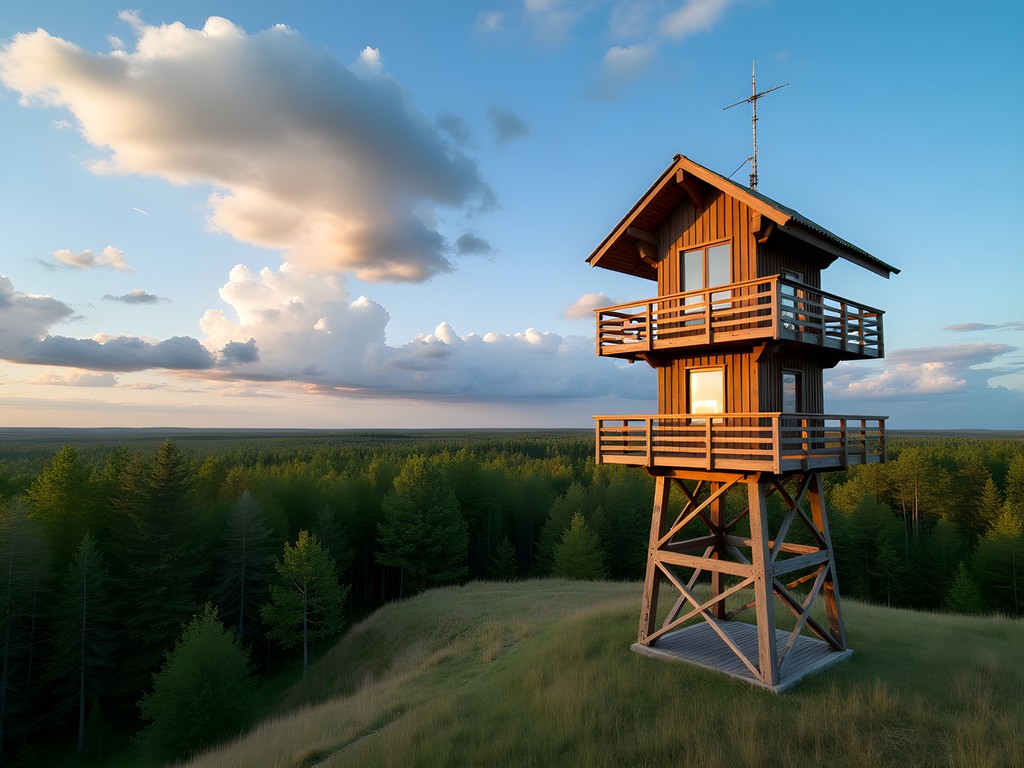
💡 Pro Tips
- Book accommodation in Rõuge or Haanja village if you want to properly explore the upland
- Visit the observation tower at Suur Munamägi for 360-degree views across the Baltic region
- Bring insect repellent in summer months as mosquitoes can be prevalent in forested areas
Elva-Vitipalu Recreation Area: Forest Bathing with a Beat
Just 25 kilometers west of Tartu lies one of my unexpected favorites – the Elva-Vitipalu recreation area. This network of trails through pine and spruce forests offers a different highland experience, with wooden boardwalks crossing wetlands and paths winding through moss-covered terrain that felt reminiscent of parts of South Korea's forested mountains.
I chose the 15-kilometer Yellow Trail, which connects several small lakes and climbs modest hills with names I couldn't pronounce. The forest here has a distinctly northern character – tall, straight pines reaching skyward, forest floor carpeted with blueberry bushes, and that distinctive smell of conifer and clean air that I've tried (and failed) to capture in studio recordings.
Midway through my hike, I encountered a wooden platform overlooking Lake Väike-Palojärv where I unpacked my lunch – a vegan picnic from Tartu's central market – and my portable recording setup to capture the layered forest sounds. The quality of these field recordings has been exceptional, picking up everything from distant woodpeckers to the subtle rustle of leaves that most hikers never consciously notice.
What makes Elva-Vitipalu special is its accessibility from Tartu (regular buses make the 30-minute journey) combined with an authentic wilderness feel once you're on the trails. I encountered only three other hikers during my six-hour exploration, creating the sense of solitude that's increasingly rare on popular hiking routes worldwide.
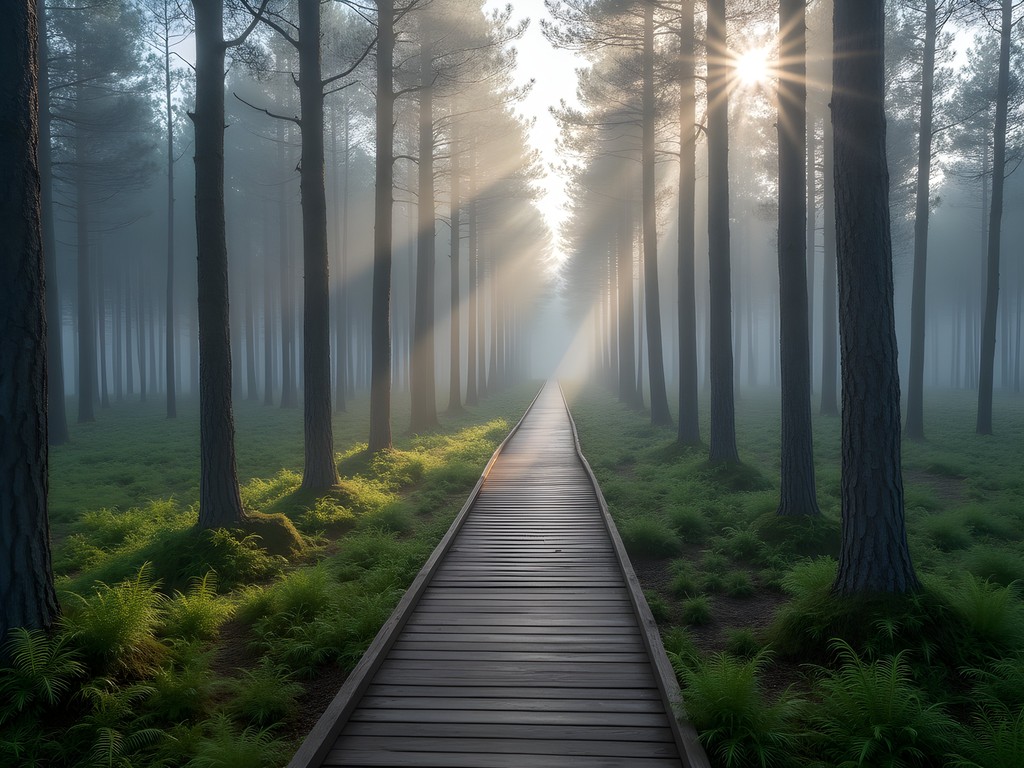
💡 Pro Tips
- Take the early morning bus from Tartu to maximize your hiking time
- Download the RMK Hiking app for detailed trail information and points of interest
- Bring extra water as there are limited refill points along the trails
Vegan Eats & Cultural Beats: Refueling in South Estonia
One of my travel philosophies is that hiking and eating are perfect companions – the former builds appetite, the latter restores energy. As a vegan traveler, Estonia surprised me with its growing plant-based scene, especially in university-influenced Tartu.
After hiking days, I gravitated toward Inspiratsioon, a cozy vegan café near the university where the mushroom-based Estonian dishes satisfied my post-trail hunger. Their forest mushroom soup with locally foraged fungi connected perfectly with my hiking experiences – literally tasting the same forests I'd been exploring.
In Otepää town, I discovered GMP Clubhotel's restaurant offering unexpectedly sophisticated vegan options. Their beetroot and barley risotto with foraged herbs became my reward after circling Lake Pühajärv. I paired it with local craft beer from Pühaste Brewery, whose pine-infused ale echoed the forest aromas I'd been immersed in all day.
Between hikes, I explored Tartu's musical offerings, finding a kindred spirit in the owner of Psühhoteek record store who shared rare Estonian folk and electronic recordings with me. These vintage vinyl treasures now form part of my sample library, with subtle elements appearing in my latest production work.
For budget-friendly trail snacks, Tartu's central market became my morning ritual. Local vendors helped me assemble picnics of dark rye bread, pickled vegetables, and forest berries that sustained me through long hiking days. I supplemented these with my trusty trail mix that travels with me from Patagonia to Estonia and everywhere between.
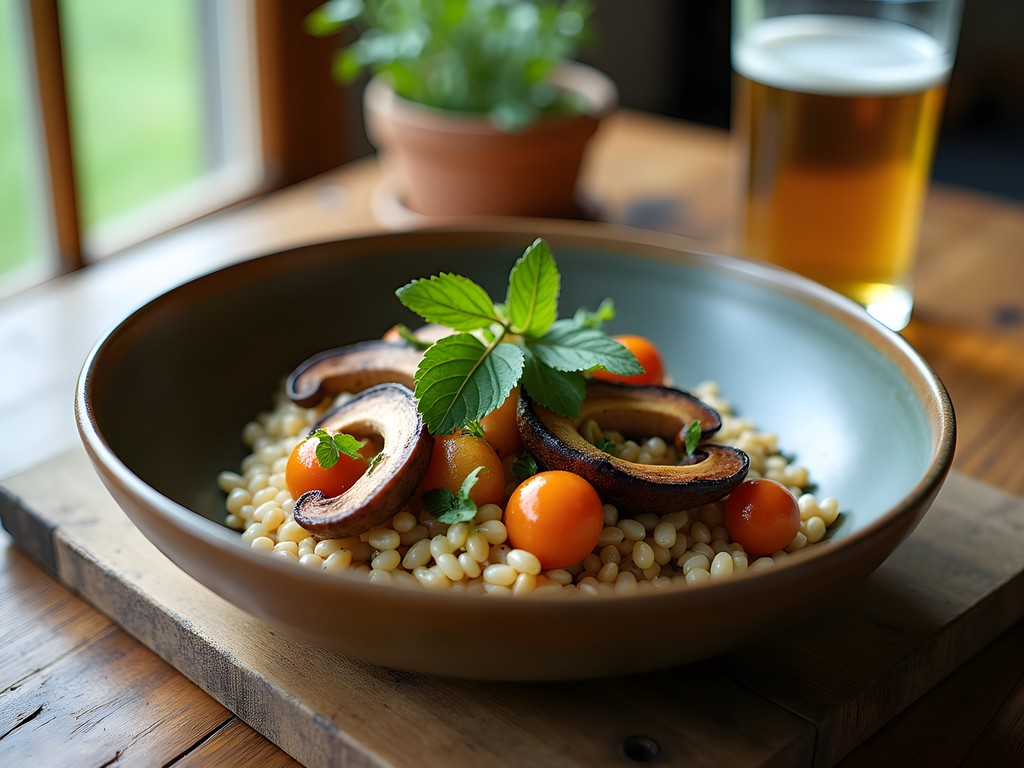
💡 Pro Tips
- Use the Happy Cow app to find updated vegan options in smaller Estonian towns
- Visit Tartu's central market early for the freshest produce and forest berries
- Try Estonian craft beers – many local breweries use foraged ingredients that complement hiking experiences
Final Thoughts
As my bus pulled away from Tartu toward Tallinn Airport, I scrolled through my audio recordings – the gentle percussion of hiking boots on forest boardwalks, wind through silver birch leaves, distant church bells echoing across Lake Pühajärv. Estonia's highlands may not reach the dramatic elevations I've experienced elsewhere, but they've left an equally profound impression. There's something deeply resonant about these modest hills that connect sky and earth in perfect harmony, much like the balance I'm constantly seeking between my Korean heritage and American upbringing. South Estonia offers solo travelers a rare combination – accessible wilderness, cultural depth, and the space to hear your own thoughts amid nature's subtle symphony. Whether you're chasing viewpoints from ancient observation towers or simply forest bathing among primeval pines, the highlands around Tartu compose a melody that will continue playing long after you've returned home. I know these soundscapes will find their way into my music production, bringing Estonia's rhythmic landscapes to listeners who may never visit but can still experience their essence through sound.
✨ Key Takeaways
- Estonia's highlands offer accessible day hiking from Tartu with excellent public transportation connections
- The combination of modest elevation with cultural and natural diversity makes South Estonia perfect for intermediate hikers
- Summer brings long daylight hours ideal for extended hikes, plus opportunities for wild berry foraging and lake swimming
- Recording natural sounds adds a new dimension to hiking experiences, creating lasting memories beyond photographs
📋 Practical Information
Best Time to Visit
June through September, with July offering warmest temperatures and longest daylight hours
Budget Estimate
$50-70/day including hostel accommodation, transportation, and meals
Recommended Duration
5-7 days based in Tartu with day trips
Difficulty Level
Intermediate With Options For Both Beginners And More Experienced Hikers

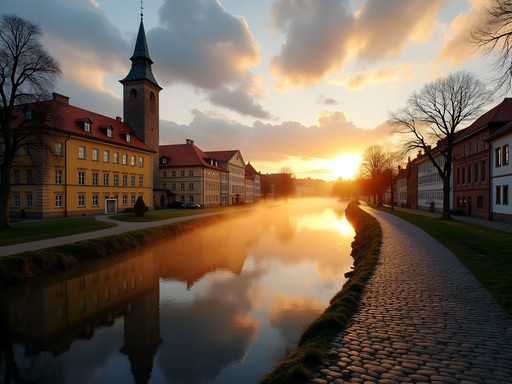


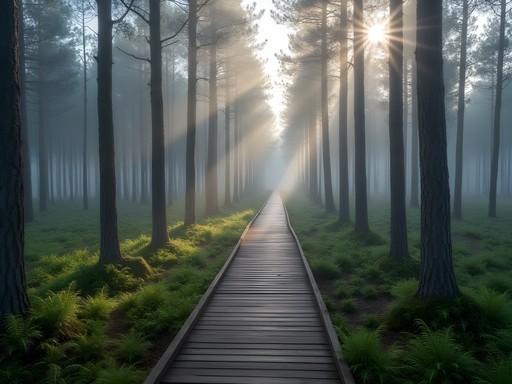
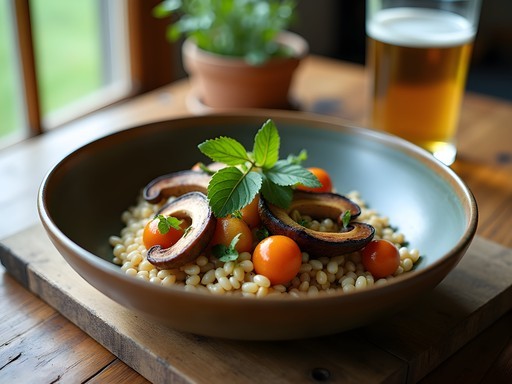



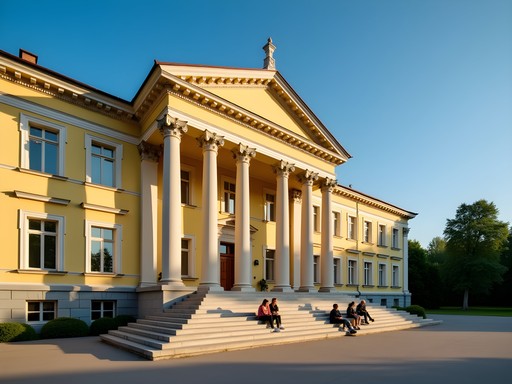
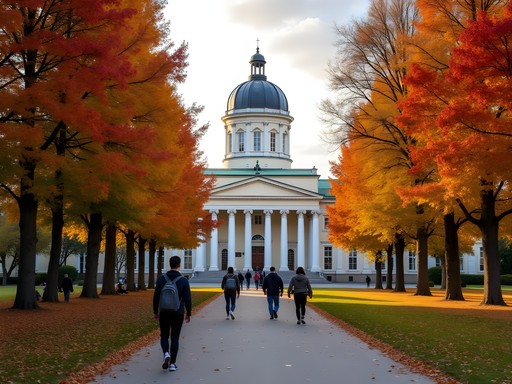
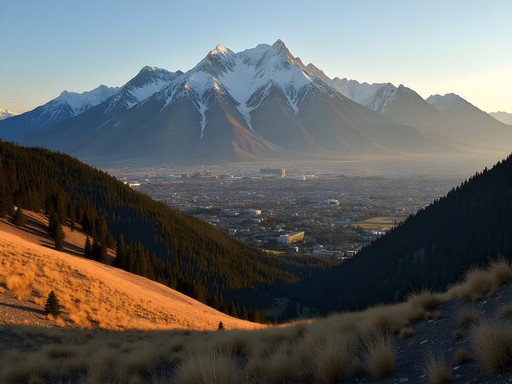
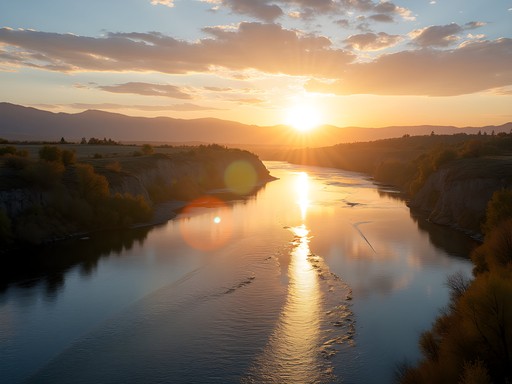
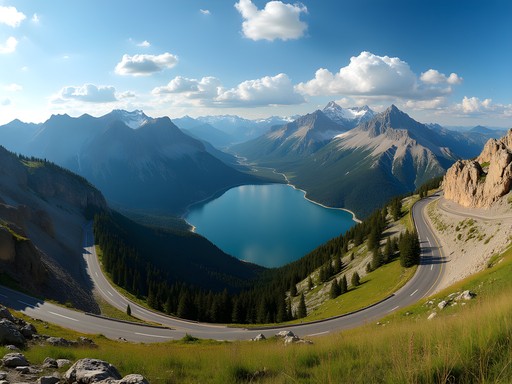
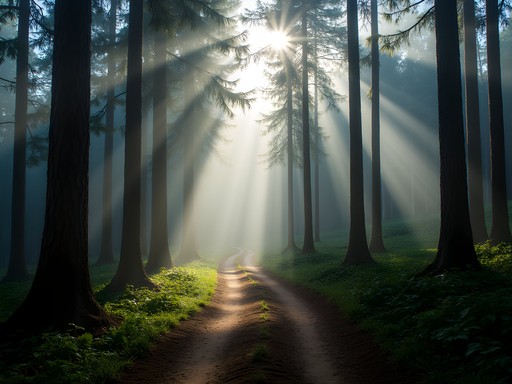

Comments
NatureTrekker
That misty morning shot of the hills is absolutely stunning! What time of year did you visit?
Savannah Wood
Thank you! That was early September - perfect timing as the summer crowds were gone but the weather was still lovely. The mornings often had that magical mist over the valleys.
coolzone
How many days would you recommend for exploring all these spots from Tartu?
Savannah Wood
I'd say minimum 3 days to hit the highlights, but 5-7 if you want to really explore at a relaxed pace and do the longer trails. Tartu itself deserves at least a day too!
coolzone
Thanks! Planning a week trip now 👍
WildWanderer
Love the audio recording idea! Never thought to capture the sounds of my hikes.
EstonianFan
If you're going to Otepää area, try the Tehvandi viewing tower! Not mentioned in the post but gives amazing panoramic views and it's right near town.
Frank Garcia
Great write-up, Savannah! Your audio recording idea is brilliant - I've always focused on photography but never thought about capturing the sounds. The Otepää trails were my highlight too, especially the way the landscape changes from dense forest to those rolling hills so quickly. One tip for anyone heading there in autumn: the temperature drops significantly in the evenings, especially in the highlands. I learned this the hard way when I got caught on Suur Munamägi as the sun was setting. My packable down jacket was an absolute lifesaver. Did you check out any of the smoke saunas while you were there? That post-hike tradition was a highlight for me.
hikerchick92
Thanks for the temperature tip! Planning to go in October, sounds like I need to pack layers.
Frank Garcia
October is beautiful there! Just bring a good hat and gloves too - the wind can be biting on the exposed hilltops.
coolzone
Wow those hills look amazing! Never thought Estonia had such cool hiking spots
Frank Garcia
Right? Estonia's always overlooked for hiking. I did the Haanja trails last year and was genuinely surprised by how beautiful they were. Low elevation but tons of character!
coolzone
Did you need a car to get around or is public transport ok?
Frank Garcia
I rented a bike in Tartu which was perfect for shorter trips. For Haanja, I used the regional buses - they're surprisingly reliable but check schedules in advance as some only run 2-3 times daily.
TravelingTeacher
Planning a trip for next summer! How many days would you recommend to properly explore these trails around Tartu? Is it doable as day trips or better to stay overnight in some of the smaller towns?
skynomad
We did 4 days based in Tartu and it was perfect! Day trips worked well for us since the buses run pretty regularly. Otepää has some cute guesthouses though if you want to split your time.
Douglas Bradley
Savannah, your audio recording idea is brilliant! I've been documenting my travels for years but never thought to capture the sounds. The Estonian highlands are indeed a hidden gem in Northern Europe's outdoor scene. I spent two weeks exploring that region last autumn when the forests were turning golden. For anyone planning to go: the trail markers in Estonia are excellent, but I'd still recommend downloading offline maps. My hiking GPS was invaluable when I ventured off the main paths. Also worth noting that the Elva-Vitipalu area has some fascinating bog boardwalks that give you a completely different ecosystem experience. Did you get a chance to try any of the smoke saunas in the region? They're part of the UNESCO cultural heritage list and absolutely worth experiencing after a long day of hiking.
wildqueen
The bog boardwalks sound amazing! Do they require special footwear or are regular hiking boots ok?
Douglas Bradley
Regular hiking boots are perfect! The boardwalks are well-maintained. Just avoid going right after heavy rain as they can get slippery.
adventuremood
I actually did this trip last summer! The bus connections from Tartu to Otepää were super easy to figure out. We stayed two nights in Tartu and did day trips. The best part was definitely climbing Suur Munamägi - it's not that tall but the views are amazing and there's this cool wooden observation tower at the top. We also found this tiny cafe in the middle of nowhere that served the most amazing wild berry pie. Definitely pack good shoes though - some trails get muddy even in summer!
Douglas Bradley
Do you remember the name of that cafe? I'm planning a Baltic trip for next year and would love to add it to my itinerary.
adventuremood
I think it was called Kohvik Suur Muna or something similar! It was right near the base of the trail. Their homemade berry liqueur was amazing too!
wildqueen
Those hills look so peaceful! Never thought of Estonia as a hiking destination before.
adventuremood
Right?? I'm adding this to my bucket list for next summer!
wildqueen
Same! The forest trails look gorgeous, especially that Elva-Vitipalu area.
Venture X
Premium card with 2X miles, $300 travel credit, Priority Pass